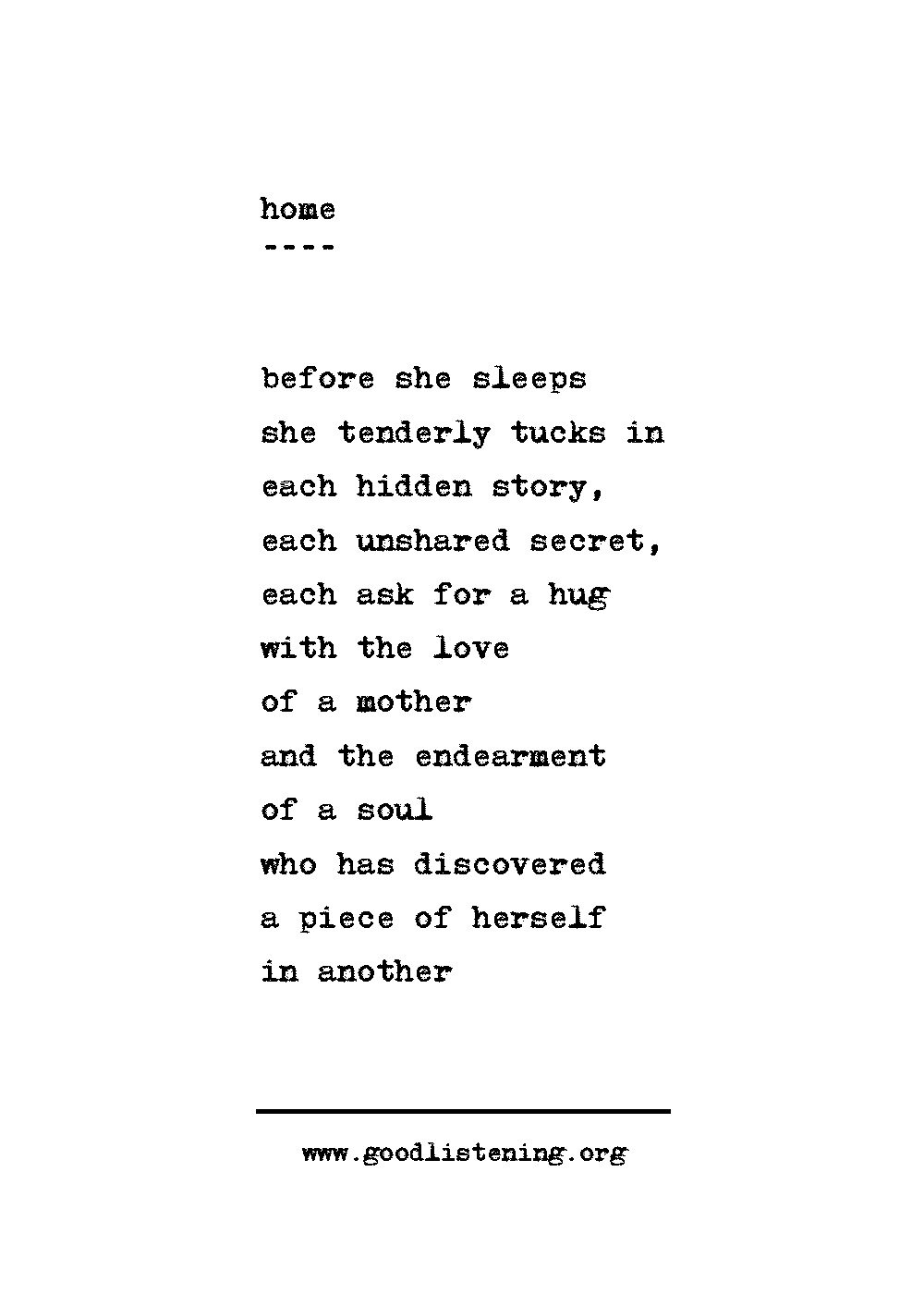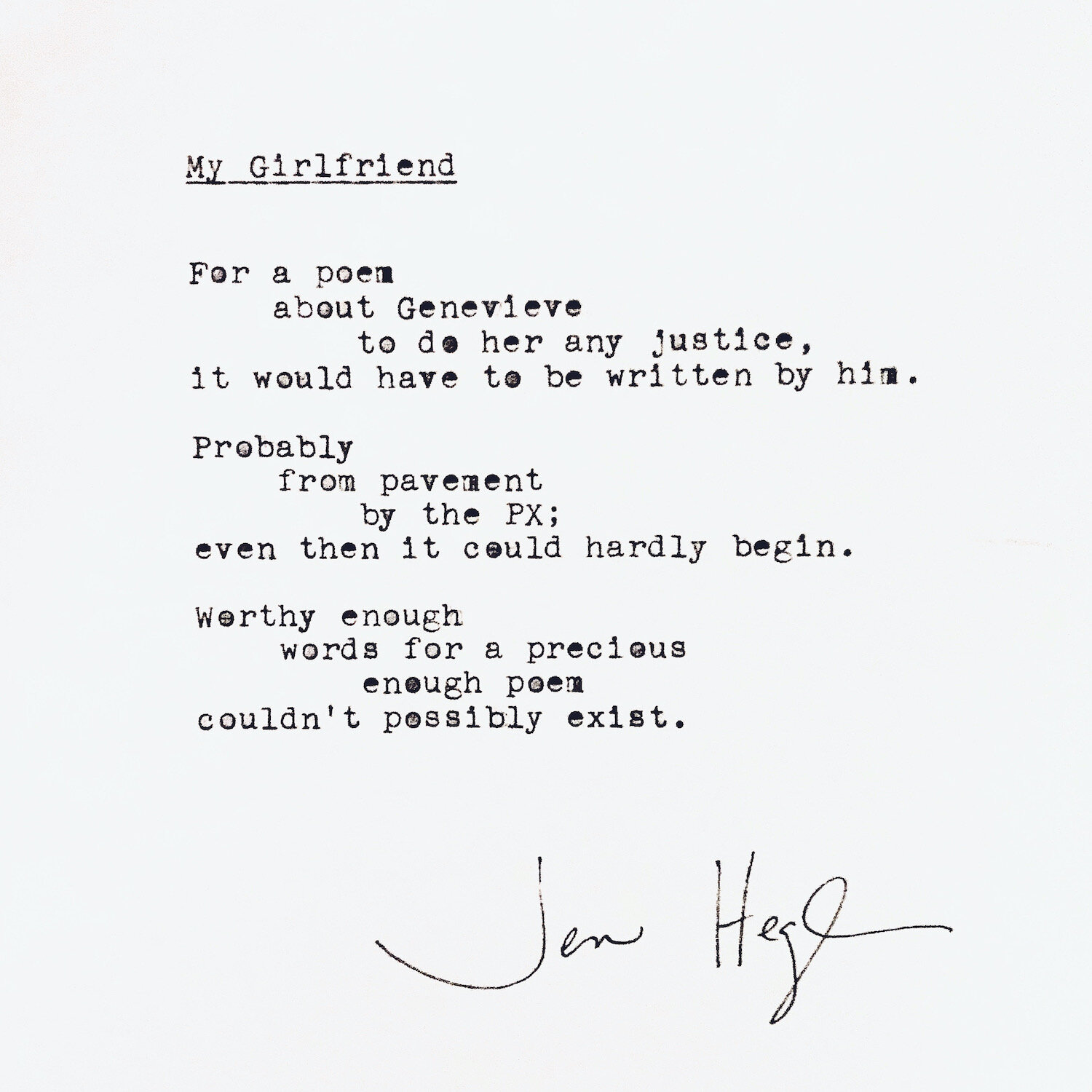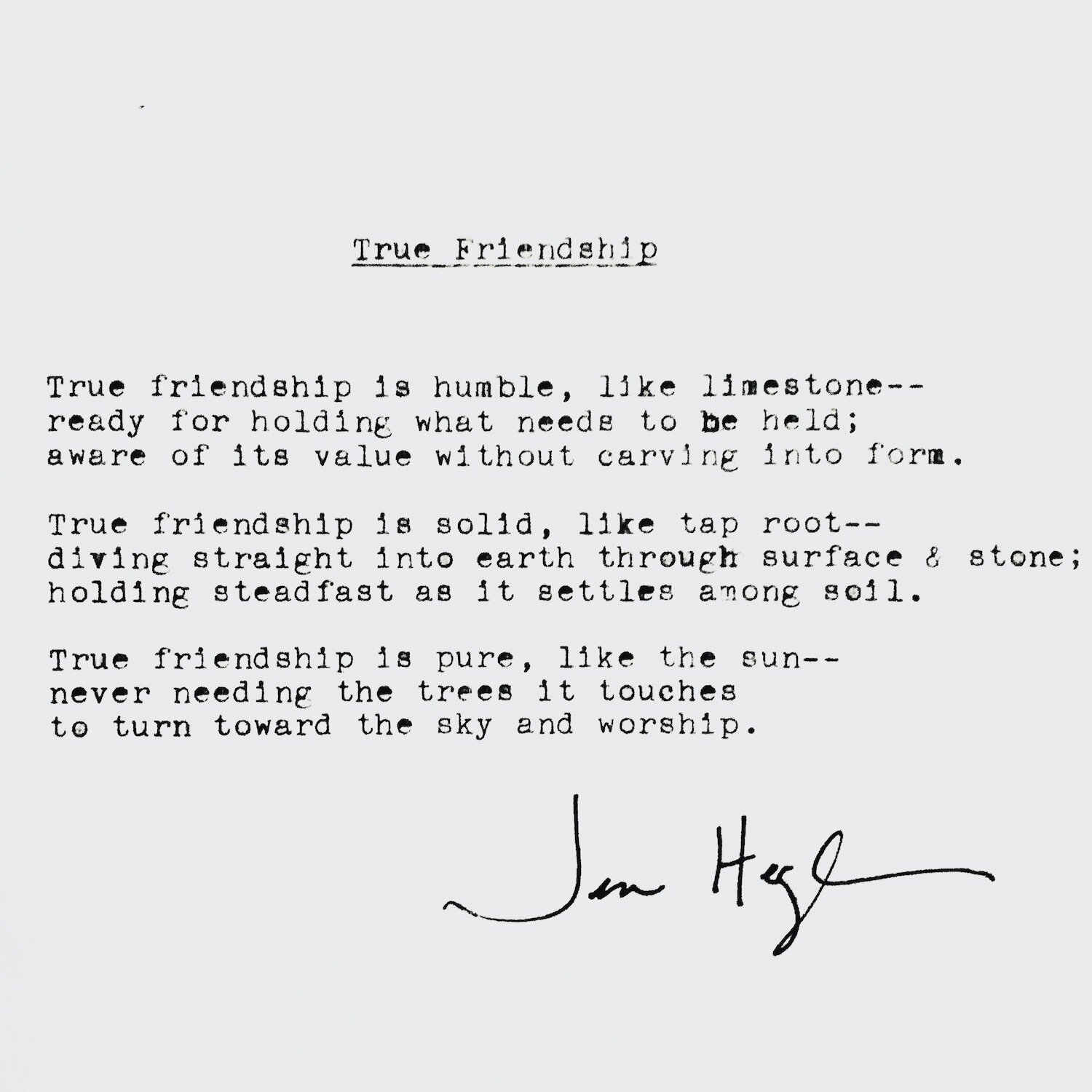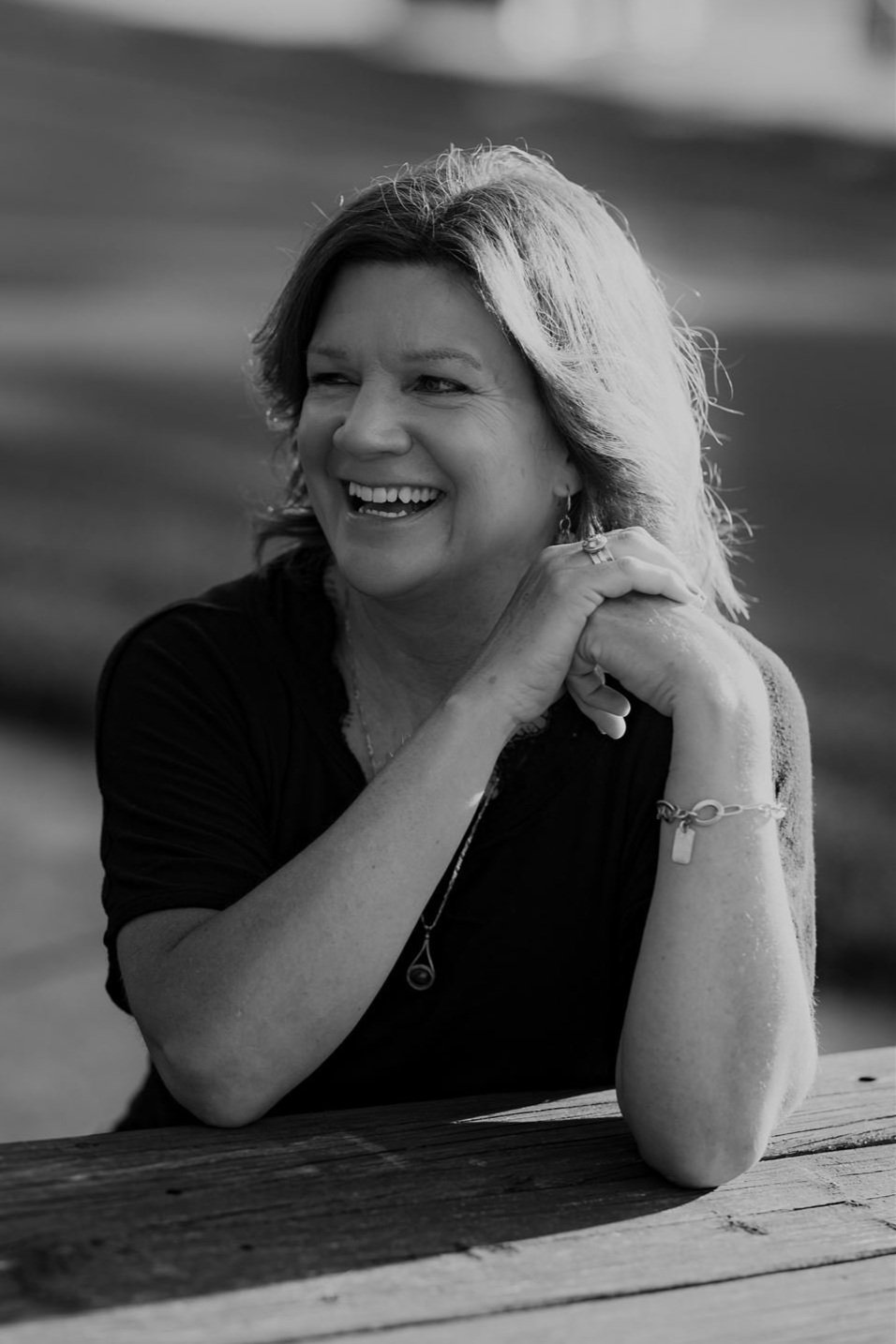
Executive Director,
Co-Founding Team
Jenny Hegland currently serves as TGLP’s Executive Director. Her life’s work centers around community engagement and healing, participatory leadership, and transformational change. Jenny’s background includes experience in higher education, nonprofit startups, leadership and organizational consulting, and grassroots organizing for social justice.
Jenny holds a M.S. in counseling, a B.S. in communications, and a Certificate in Appreciative Inquiry for positive business and society change.
Frankie Abralind and I have a mutual friend who introduced me to The Good Listening Project. I had been using poetry and graphic visualizations to make meaning and learning visible within groups for many years. I am also passionate about the practice of witnessing, so I was immediately drawn to the work.
“Life is complex and dirty, but digging in is important to me,” she said. “Maybe if more of us understood history, we could understand each other better.”
Every day, I try to see through the patient lens, and I ask: what can we do to change this broken system?
“It’s hard to see others struggle,” she said. “How can I help with their struggle without struggling myself?”
“I'm continuously questioning: did I do it right?" she said. "I’ve always done a good amount of second-guessing, but I’m re-learning how to show up differently.”
“It’s weird,” she said. “This is one of the biggest accomplishments of my life, but it doesn’t feel like it.”
“It’s been more challenging than normal lately,” she said. “I’m only one person. It's a struggle for me to say no, but I can’t do everything that’s being asked of me right now.”
“There’s a constant feeling inside that I should be doing more,” she said. “But I also want to be kind to myself and recognize all that I’ve given.”
“When you get to hear the hidden sides of people’s stories, you never look at people the same,” she said, with a noticeable tenderness in her voice. This woman was a therapist who supported physicians and residents. “Sometimes as I lay in bed at night I inhabit the stories people share with me.”
This person described himself as a dreamer. As he spoke, he painted a particularly clear and vivid vision of the future he saw possible for the VA. He worked in diversity, equity, and inclusion, and his passion for the work was evident and inspiring.
“When everything else stops, we keep going,” she began. This woman had always wanted to be a physician, and as a medical school student, was about to become the seventh generation of physicians on her mother’s side of the family.
This woman was part of a small but mighty team that ran the Innovation Ecosystem within the VA. She arrived visibly excited to share about their work, and after learning more about it, I understand why.
He had been thinking a lot about race over the past several months. He’s a White man with two children: a 20-year-old biological son who is White, and an 18-year-old adopted daughter who is Black.
She’d been in a physician leadership role with the VA for seven years. Over her tenure, she’d never seen the system rise as one team like this. “There’s so much we don’t know about COVID. But our teams are stepping up in ways I could never have imagined.”
Being a poet himself, he was eager to share his word and recite some of his favorite pieces of poetry. He had so much to share, but honed in, requesting a poem about his wife.
She immediately knew that she didn’t want her poem to be about cancer. She wanted it to be about friendship and asked if she could share a recent story.
“I miss my four cats back home,” she said. “Want to see pictures of them?!” She was a graduate student in biotechnology. She explained that the program consumed her life. She saw other students studying abroad, posting pictures of travel and fun, but there was no room for that in her life.































